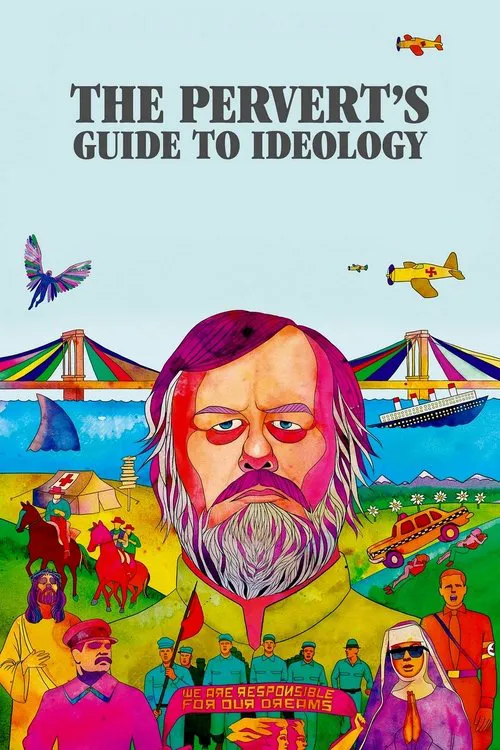The Pervert's Guide to Ideology

Plot
The Pervert's Guide to Ideology, directed by Sophie Fiennes, is an insightful and incisive examination of the ways in which film narrative reinforces prevailing ethics and political ideas. The documentary weaves together the ideas of Slavoj Žižek, a renowned Slovenian philosopher and psychoanalyst, as he expertly navigates the landscape of popular culture and cinematic history. Žižek's infectious enthusiasm and voracious intellect drive the narrative as he scrutinizes iconic films to uncover the ideological currents that underlie them. He argues that film is not merely a form of entertainment; rather, it serves as a tool for reinforcing social norms and shaping individual attitudes. By examining the ways in which film narratives manipulate audience perceptions, Žižek reveals the intricate relationships between cinematic storytelling and the ideologies that underpin our collective and personal beliefs. One of the primary concerns of The Pervert's Guide to Ideology is the manner in which film narratives construct and reinforce identity. Žižek draws on a range of films, including Alfred Hitchcock's Vertigo and the Hollywood Western, to demonstrate how cinematic narratives can both reinforce and subvert societal expectations of identity. He examines how the construction of the idealized female figure in film, for instance, serves as a reflection of the patriarchal ideologies that underlie society. Another key theme is the role of ideology in shaping our perceptions of reality. Žižek examines various films, such as the Bond franchise and the sci-fi epic 2001: A Space Odyssey, to reveal how cinematic narratives can create alternate realities that either reinforce or challenge dominant ideologies. He argues that film narratives often serve as a means of legitimizing existing power structures, masking the inherent contradictions and tensions within them. By analyzing these tensions, Žižek demonstrates how film can be a powerful tool for social critique and, potentially, social change. Žižek's analysis also turns to the role of ideology in shaping our emotional and psychological responses to film. He draws on films such as Stanley Kubrick's A Clockwork Orange and Martin Scorsese's Taxi Driver, to explore the ways in which cinematic narratives manipulate audience emotions and reinforce specific ideological positions. He argues that film narratives can both provoke and reassure, drawing the viewer into a particular ideological framework that either reinforces or challenges existing power structures. Throughout The Pervert's Guide to Ideology, Žižek frequently engages with key concepts in philosophy and psychoanalysis, from Lacan's concept of the Real to the theories of Marx and Lenin. His analyses are deeply rooted in the intellectual traditions of critical theory, allowing him to draw connections between ideological currents in film and broader intellectual currents in Western society. By navigating the complex and often contradictory currents of popular culture and intellectual thought, Žižek illuminates the labyrinthine heart of ideology, revealing the intricate web of relationships between film narrative, social norms, and individual attitudes. The Pervert's Guide to Ideology is a challenging and intellectually rigorous film that rewards close attention and engagement. Žižek's zeal and appetite for popular culture are contagious, and his infectious enthusiasm makes even the most complex intellectual ideas seem accessible and exciting. The documentary provides a fascinating glimpse into the world of cinema and ideology, illuminating the ways in which film narratives reinforce and challenge prevailing ethics and political ideas.
Reviews
Recommendations




